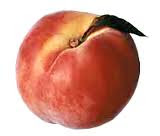Through my success, another lost her turn.
I should not waste time on the weak, I’m told.
But what of newborns who have all to learn?
They’d have no chance at life were we so cold.
Is there a way to split myself apart,
to treat my mates according to their age?
One attitude toward those at the start,
and quite another for those at my stage?
Consider, too, the injured and the sick.
Why don’t we just abandon them to die?
It strains my mind to know which ills to pick,
or rather, which of them should make me cry.
My mother says I think too much: It’s true.
Though self-awareness has a strong appeal,
it hurts me more to reason these things through
than simply to accept the way I feel.
The greatest drawback to this thinking, though,
is not in its diversion from my needs
nor in the pain it might engender—no,
but in the danger zone to which it leads.
©2010 Louis A. Merrimac
But what of newborns: Merrimac has indicated that this was the germ of the story. Supposedly he was troubled by the existence in humans of altruism and sympathy toward the less fortunate, which he was convinced are maladaptive, and having hit upon a solution to the enigma, took it further to reach the hypothesis in Canto IV. I find it hard to imagine that someone would put that much effort into an idea and then give it such relatively light treatment. Ah, but this is Merrimac, so it is possible. An anonymous correspondent of mine, who is familiar with but not a participant in some of the debates among evolutionists, thinks it could be worked into a theory no less plausible, but no more testable, than most of the others she has seen. She says the Sociobiologists like to show how altruistic selfless behavior is genetically innate and therefore becomes a moral value. She points out that if it’s innate, it doesn’t need to be a value. We don’t feel that kind of obligation to eat or to breathe.
Simply to accept: This is a hint of an important part of the Canto IV hypothesis, although the focus here is on the maintenance of a belief system rather than its genesis. What Merrimac is suggesting as the basis for morality would not work if humans in general were capable of and willing to examine ourselves closely enough to understand its purpose. It is possible (and necessary) only because we are so intelligent, but it requires that our intelligence not be directed toward it. Morality is not to our benefit as we would see it; it is to the benefit of our genes. If our genes actually had wills of their own, they would see our powerful brains as contemporaneously beneficial and dangerous. Thus intelligence and ignorance are not only compatible; they are symbiotic.
Subscribe to:
Post Comments (Atom)

No comments:
Post a Comment